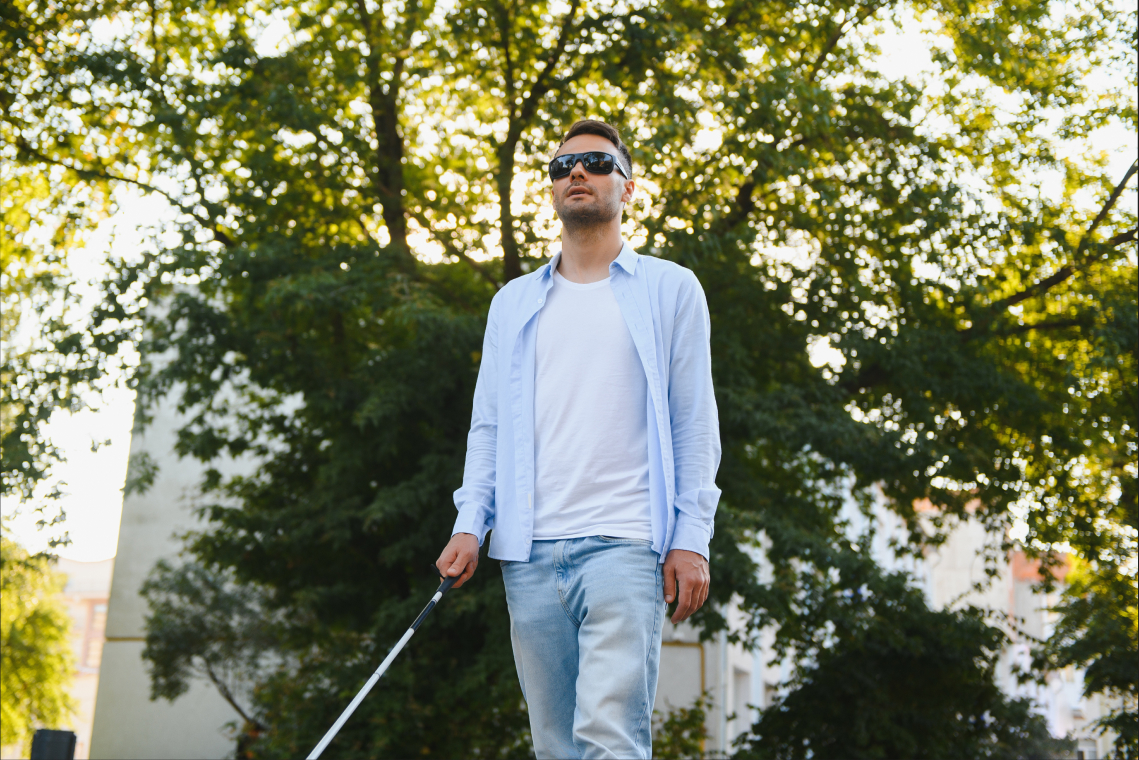Living independently with vision loss is not only possible but also empowering with the right resources, strategies, and support systems in place. Independence is about having the ability to make choices and navigate life confidently, and for those experiencing vision loss, this involves adapting environments, utilizing assistive technologies, and advocating for accessibility.
Embracing Assistive Technology
Modern technology plays a transformative role in supporting independence for individuals with vision loss. A variety of devices and software are designed to enhance navigation, communication, and daily living:
- Screen Readers and Magnification Software: Tools like JAWS (Job Access With Speech) and ZoomText allow individuals to access digital content through audio feedback or enlarged text.
- Smart Home Devices: Voice-controlled systems enable users to manage household tasks, including adjusting lighting, setting reminders, and controlling appliances.
- Navigation Tools: GPS apps tailored for vision loss, such as Aira and Be My Eyes, offer real-time assistance to navigate unfamiliar environments.
These technologies bridge the gap, offering greater autonomy and facilitating active participation in professional and social spaces.
Adapting the Environment
Creating a vision-friendly living space is essential for maintaining independence. Simple adjustments can significantly improve accessibility and ease of navigation:
- Labeling and Organization: Tactile labels, high-contrast markings, and Braille can make identifying everyday items easier.
- Lighting and Contrast: Ensuring adequate lighting and using contrasting colors for key objects enhances visibility and orientation.
- Mobility Aids: Tools such as white canes and guide dogs provide critical support for safe, independent movement.
By customizing the environment to meet their needs, individuals with vision loss can confidently perform daily tasks and maintain a sense of control.
Building Support Networks
Independence does not mean doing everything alone. Support from family, friends, and professional networks can enhance autonomy and well-being:
- Peer Support Groups: Connecting with others who share similar experiences fosters community, provides emotional support, and offers practical advice.
- Orientation and Mobility Training: Specialized training helps individuals develop the skills to navigate independently and safely.
- Community Resources: Organizations dedicated to vision loss offer services ranging from counseling to job placement assistance.
Having a strong support network empowers individuals to overcome challenges and pursue their goals confidently.
Advocating for Accessibility
Living independently also involves advocating for a more accessible world. Individuals with vision loss are leading efforts to ensure environments, technology, and policies are inclusive:
- Accessible Education and Employment: Advocating for inclusive education programs and workplace accommodations opens doors to personal and professional growth.
- Public Spaces and Transportation: Pushing for accessible public spaces and transit systems ensures equitable access for everyone.
- Digital Accessibility: Promoting compliance with web accessibility standards ensures that digital information is available to all.
By speaking out and sharing experiences, individuals with vision loss help shape a world where everyone can thrive independently.
Redefining Independence
Independence with vision loss is about more than navigating physical spaces; it’s about having the freedom to live a fulfilling life on one’s terms. With the right tools, adapted environments, and supportive networks, individuals with vision loss can achieve their personal and professional aspirations.
As society continues to evolve, embracing accessibility and advocating for inclusive practices is crucial. By doing so, we create communities where everyone, regardless of their vision, has the opportunity to live independently and with dignity.
How do you define independence with vision loss? Share your insights and experiences in the comments below—your voice matters.




